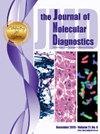SARS-CoV-2 基因组监测的考虑因素:分子病理学协会和公共卫生实验室协会的联合共识建议。
IF 3.4
3区 医学
Q1 PATHOLOGY
引用次数: 0
摘要
下一代测序(NGS)可应用于研究、流行病学、肿瘤学和传染病诊断。NGS 湿法实验室技术和干法实验室分析注意事项存在很大差异。因此,当实验室采用 NGS 方法进行传染病检测时,许多问题仍未得到解答。虽然本综述无意回答所有问题,但将从公共卫生和临床医院实验室的角度探讨最迫切的问题。本综述的作者是执行和解释 SARS-CoV-2 NGS 结果的实验室专业人员。将探讨分析前、分析中和分析后 NGS 的注意事项。本综述强调了分子实验室专业人员在考虑采用或扩展 NGS 方法时所面临的挑战。本文章由计算机程序翻译,如有差异,请以英文原文为准。
Considerations for Severe Acute Respiratory Syndrome Coronavirus 2 Genomic Surveillance
Next-generation sequencing (NGS) has applications in research, epidemiology, oncology, and infectious disease diagnostics. Wide variability exists in NGS wet laboratory techniques and dry laboratory analytical considerations. Thus, many questions remain unanswered when NGS methods are implemented in laboratories for infectious disease testing. Although this review is not intended to answer all questions, the most pressing questions from a public health and clinical hospital-based laboratory perspective will be addressed. The authors of this review are laboratory professionals who perform and interpret severe acute respiratory syndrome coronavirus 2 NGS results. Considerations for pre-analytical, analytical, and postanalytical NGS will be explored. This review highlights challenges for molecular laboratory professionals considering adopting or expanding NGS methods.
求助全文
通过发布文献求助,成功后即可免费获取论文全文。
去求助
来源期刊
CiteScore
8.10
自引率
2.40%
发文量
143
审稿时长
43 days
期刊介绍:
The Journal of Molecular Diagnostics, the official publication of the Association for Molecular Pathology (AMP), co-owned by the American Society for Investigative Pathology (ASIP), seeks to publish high quality original papers on scientific advances in the translation and validation of molecular discoveries in medicine into the clinical diagnostic setting, and the description and application of technological advances in the field of molecular diagnostic medicine. The editors welcome for review articles that contain: novel discoveries or clinicopathologic correlations including studies in oncology, infectious diseases, inherited diseases, predisposition to disease, clinical informatics, or the description of polymorphisms linked to disease states or normal variations; the application of diagnostic methodologies in clinical trials; or the development of new or improved molecular methods which may be applied to diagnosis or monitoring of disease or disease predisposition.

 求助内容:
求助内容: 应助结果提醒方式:
应助结果提醒方式:


